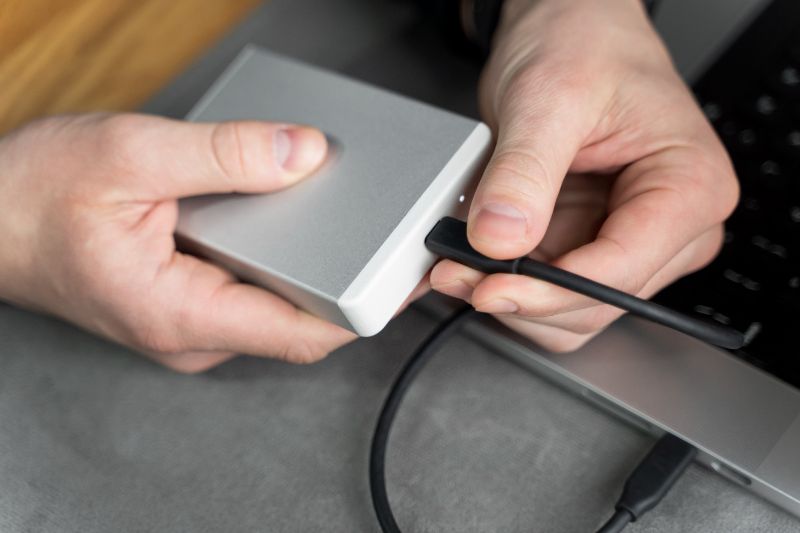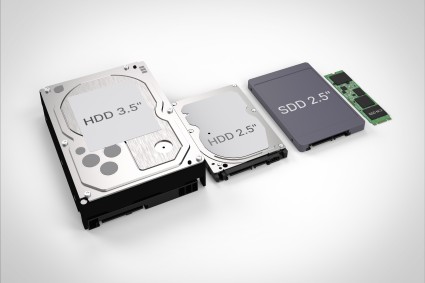
Laptop storage is the amount of data that your laptop can store. It is measured in gigabytes (GB) or terabytes (TB). Laptops come with a variety of storage options, ranging from very small amounts (32GB) to very large amounts (1TB or more). The amount of storage you need will depend on the type of activities you do with your laptop. If you are a gamer, for example, you will need more storage than someone who just wants to use their laptop for basic tasks like browsing the web.
Types of Laptop Storage

The two main types of laptop storage are solid-state drives (SSDs) and hard disk drives (HDDs). SSDs are faster and more reliable than HDDs, but they are also more expensive. HDDs are cheaper and have more storage capacity, but they are slower and less reliable than SSDs.
| Storage Type | Speed | Reliability | Cost | Storage Capacity |
|---|---|---|---|---|
| Solid-State Drives (SSDs) | Very Fast | High | Expensive | Lower |
| Hard Disk Drives (HDDs) | Slower | Lower | Cheaper | Higher |
Solid-State Drives (SSDs)
SSDs are a type of storage drive that uses flash memory to store data. They are much faster than HDDs and offer more reliable performance. SSDs are also more expensive than HDDs, so they are usually used in high-end laptops.
Hard Disk Drives (HDDs)
HDDs are a type of storage drive that uses spinning platters to store data. They are much cheaper than SSDs, but they are also slower and less reliable. HDDs usually have much higher storage capacities than SSDs, so they are often used in laptops that need to store a lot of data.
How to Get More Storage on Your Laptop

If you need more storage on your laptop, there are a few different options you can choose from. Depending on your budget and technical skills, you can upgrade your existing hard drive, replace your existing hard drive, add an external hard drive, add an internal hard drive, or add an external solid-state drive.
| Upgrade Option | Advantages | Disadvantages |
|---|---|---|
| Upgrade Existing Hard Drive | Cheapest and quickest | Least reliable, no need to open up laptop |
| Replace Existing Hard Drive | More reliable, no need to open up laptop | More expensive, time-consuming |
| Add External Hard Drive | Cheaper, no need to open up laptop | Less reliable, slower, must be carried with you |
| Add Internal Hard Drive | More reliable, faster | More expensive, must open up laptop to install |
| Add External Solid-State Drive | More reliable, faster | More expensive, must be carried with you |
Upgrade Your Existing Hard Drive
If you have an HDD in your laptop, you can upgrade it to a larger capacity. You will need to purchase a new hard drive and use a special tool to install it. This option is usually the cheapest and quickest way to get more storage on your laptop, but it is also the least reliable option.
Replace Your Existing Hard Drive
If you have an HDD in your laptop, you can replace it with a larger capacity drive. You will need to purchase a new hard drive and use a special tool to install it. This option is usually more reliable than upgrading your existing hard drive, but it is also more expensive and time-consuming.
Add an External Hard Drive
If you don’t want to upgrade or replace your existing hard drive, you can add an external hard drive to your laptop. This will give you more storage space, but it will also require you to carry the external drive with you wherever you go. External hard drives are usually cheaper than internal hard drives, but they are also less reliable and slower.
Add an Internal Hard Drive
If you don’t want to upgrade or replace your existing hard drive, you can add an internal hard drive to your laptop. This will give you more storage space, but it will also require you to open up your laptop to install the drive. Internal hard drives are usually more reliable and faster than external hard drives, but they are also more expensive.
Add an External Solid-State Drive
If you don’t want to upgrade or replace your existing hard drive, you can add an external solid-state drive (SSD) to your laptop. This will give you more storage space, but it will also require you to carry the external drive with you wherever you go. External SSDs are usually more reliable and faster than HDDs, but they are also more expensive.
Advantages and Disadvantages of Each Option

Each option for getting more storage on your laptop has its own advantages and disadvantages. Below is a breakdown of the benefits and drawbacks of each option.
Upgrade Your Existing Hard Drive
- Advantages: Cheapest and quickest way to get more storage, no need to open up laptop.
- Disadvantages: Least reliable option.
Replace Your Existing Hard Drive
- Advantages: More reliable than upgrading, no need to open up laptop.
- Disadvantages: More expensive and time-consuming than upgrading.
Add an External Hard Drive
- Advantages: Cheaper than internal hard drives, no need to open up laptop.
- Disadvantages: Less reliable and slower than internal hard drives, must be carried with you.
Add an Internal Hard Drive
- Advantages: More reliable and faster than external hard drives.
- Disadvantages: More expensive than external hard drives, must open up laptop to install.
Add an External Solid-State Drive
- Advantages: More reliable and faster than HDDs.
- Disadvantages: More expensive than HDDs, must be carried with you.
Frequently Asked Questions
How Much Storage Do I Need?
| User Type | Recommended Storage |
|---|---|
| Basic Tasks (e.g., web browsing) | 128GB – 256GB |
| Gaming | 256GB – 1TB or more |
The amount of storage you need will depend on the type of activities you do with your laptop. If you are a gamer, for example, you will need more storage than someone who just wants to use their laptop for basic tasks like browsing the web. Generally speaking, for most users, a laptop with 128GB to 256GB of storage should be more than enough.
What is the Difference Between an SSD and an HDD?
The main difference between an SSD and an HDD is speed. SSDs are much faster than HDDs, but they are also more expensive. HDDs are cheaper and have more storage capacity, but they are slower and less reliable than SSDs.
Is it Possible to Upgrade a Laptop’s Storage?
Yes, it is possible to upgrade a laptop’s storage. Depending on the type of laptop you have, you can upgrade your existing hard drive, replace your existing hard drive, add an external hard drive, add an internal hard drive, or add an external solid-state drive.
Do I Need to Backup My Data Before Upgrading?
Yes, it is important to back up your data before upgrading or replacing your laptop’s storage. Upgrading or replacing your laptop’s storage can cause data loss, so it is important to back up your data before making any changes.
